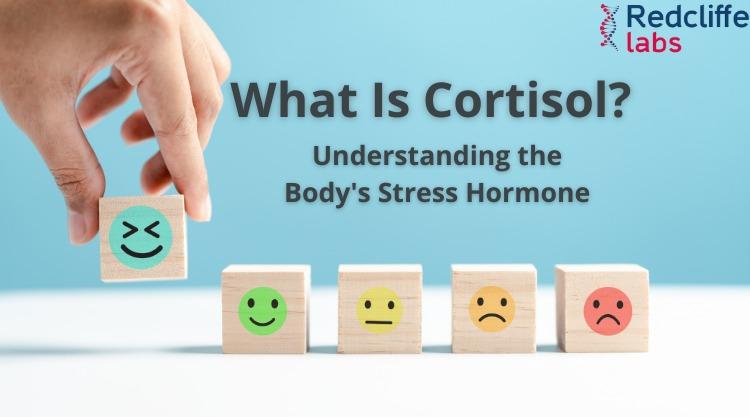How Alcoholism and Depression Are Related & How To Effectively Treat The Effects

Medically Reviewed By
Dr. Ragiinii Sharma
Written By Srujana Mohanty
on Jul 18, 2022
Last Edit Made By Srujana Mohanty
on Jan 10, 2025

According to reports from the World Health Organization, over 3 million people die due to alcohol abuse every year. Among that, a hefty percentage is influenced by mental illnesses, most commonly depression. The incidences of alcoholism and depression are often related. It is commonly seen that one of the two directly aggravates the other.. This means that a person who is depressed might start relying on alcohol to “feel better” or an alcoholic might start feeling hopeless and helpless once the high begins to fade, which in turn will increase his comsumption. Making it a vicious, almost neverending cycle. It leads to death, poor life decisions and consequences that could otherwise be contained. This also has an adverse effect on their mental and physical health. However, the good news is that both alcoholism and depression are treatable. The improvement in one instance often betters the other. This article will explore more about the connection between alcohol abuse and depression and how it can be diagnosed and treated.
How do Alcoholism and Depression Co-Exist as a Cycle?
If you turn to the media representation of alcoholism and depression, you will often hear phrases like “Drinking alcohol numbs the pain.”
Scenario 1
That’s where the cycle starts. Depression is a mood disorder, that leads to feelings of helplessness, despair and looming sadness. Many depressive individuals often turn to alcohol as a form of “self-medication” to numb the self-deprecating feelings. Is it a healthy coping mechanism? No. But, do people still struggle with alcohol dependency to overcome their depressive symptoms? Yes, a shockingly high percentage. The reason why alcoholism and depression co-exist is because of the highs and lows of energy burst. A person who is feeling down and depressed feels energetic and carefree when drinking alcohol. Studies even indicate that alcohol provides temporary relief against anxiety symptoms and lowers one’s inhibitions. However, the conclusion comes down to one – alcohol is never a healthy choice to cope with depression signs. It might provide temporary relief but it worsens the symptoms over time.
Scenario 2
Surprisingly enough, there is another facet to the alcohol-depression cycle. People who are alcoholics are more likely to be depressed, anxious and battle a plethora of other mental illnesses. Even studies have found that veterans, following their deployment struggle with post traumatic stress disorder, depression, anxiety, etc. and often resort to alcohol to cope with such feelings. However, instead of helping, alcohol dips a deeper pit for the person become reliant on it. There is research that indicate that the degree of alcohol dependence and depression is quite relevant in women, wherein several women resort to binge drinking to overcome their struggles with depression. Studies also indicate that childhood trauma can contribute to depression and earlier dependence on alcohol. Many people with unresolved trauma resort to alcohol to bypass their emotions and prevent themselves from feeling the wrath of it.
What are the Symptoms of Alcoholism and Depression?
Despite being a co-dependent scenario, the symptoms of alcoholism and depression are different and entirely separate. Here’s what you should look out for:
| Alcoholism Symptoms | Depression Symptoms |
| Drinking excessively in one episode | Sadness |
| Craving alcohol persistently | Feeling unworthy |
| Drinking daily | Loss of interest in activities |
| Sneaking alcohol | Lacking energy levels |
| Drinking despite consequences | Inability to concentrate |
| Avoiding doing productive activities to drink | Substance abuse |
| Finding it hard to stop drinking | Suicidal thoughts |
These are some of the primary symptoms that one should be aware of. Since there is a fine line between drinking alcohol and being an alcoholic and feeling sad and being depressed, one has to identify the symptoms before it’s too late. Identifying the triggers behind the onset of alcoholism and depression signs and symptoms is crucial too. What is causing these unhealthy habits? We shall explore than in details next.
What Triggers Alcohol-Depression Cycle?
It's often difficult to distinguish the triggers. Was it the alcohol that triggered depression or the other way around? You need to understand and realize that person’s battles are different. Every person’s reasoning behind their alcoholism and depression are different too. Most of the people stuck in this vicious cycle of poor habits find it hard to depict which came first. Was it the alcohol or the depressive episodes? Besides trauma, anxiety, and poor life choices, there are several subjective causes that could contribute to alcoholism and depression. Some of them are:
Traumatic personal history
People who have experienced past trauma, experiencing a personal low in their life or have lost someone close to them might subject themselves to poor life choices that can later lead to alcoholism and depressive episodes.
Negative and Pessimistic personality
Although not 100% scientifically proven reasoning, there are instances that show that people with a negative outlook on life have a heightened tendency to develop these issues. Some individuals struggling with low self-esteem, social anxiety, etc. can resort to drinking alcohol or feeling depressed in their lives.
Genetics
There are studies that indicate that familiar history or genetic predisposition increases the risk of developing alcohol use disorder or depression. There are not many conclusive studies that ascertain or back up the claims 100% but it is viable to an extent, as shown in multiple studies. The causes behind alcoholism and depression are highly subjective and situation-specific. A person who lived a happy and carefree life just the previous month could experience a complete 360 to their life and resort to alcohol to deal with their life. Again, we want to reiterate that this is not a healthy coping mechanism. If you are struggling with emotions that make you want to reach out for alcohol, get professional help to curb those negative feelings. There are national hotline numbers there to help individuals through their depression as well.
How is Alcohol Use Disorder and Depression Diagnosed?
The diagnosis for both these conditions involves two aspects – physical evaluation and psychological evaluation. Before reaching a formal diagnosis, your doctor has to assess every aspect of your life and analyze the trigger points. This involves assessing the risk factors, running a multi-test approach and taking every little symptom into consideration. A well-experienced specialist won’t directly prescribe medication for anxiety and depression. Instead, they will assess your state of mind, and discuss the complications, and the triggers before reaching a conclusion. It is a highly sensitive subject, one that can put the patient in a defensive mode where they don’t want to acknowledge their struggles and get the help that they need. So, it's crucial to tread through the process of diagnosis without any judgement involved.
What are the Treatment Options?
Following a formal diagnosis, alcoholism and depression treatment depend on the severity of the condition. If the issues are at the initial stages, medication and cognitive behavioral therapy are considered ideal. However, in extreme cases where the person is dependent on alcohol and is in a very dark place mentally, the doctor might suggest rehabilitation therapy. This enables the patient to get a clear purpose in their life and work towards it. Here’s a breakdown of the treatment options:
Medication
Medications address two concerns in this issue – depressive symptoms and alcohol cravings. Remember that medication is often prescribed to patients who are in the initial stages of self-destruction.
Rehabilitation
This treatment option is ideal for patients who have developed a physical dependency on alcohol. This means that they feel restlessness and other physical symptoms when they are not drinking. It is a very serious issue and even fatal in some cases. The rehabilitation facilities support a patient through their alcohol withdrawal, under professional guidance and supervision. These facilities also help patients struggling with depression alongside alcohol dependency.
Therapy
CBT is a leading treatment option for patients struggling with alcohol use disorder and depression. It is a form of psychotherapy that allows the patient to self-reflect, introspect and introduce positive changes to their choices and behavior.
Support groups
People with alcoholism and depression often feel like they are alone in this journey of self-destruction. Joining support groups enables individuals to connect with people who have been on the same journey as them. It addresses several underlying conflicts and allows the patients to get the help that they need while on their road to recovery.
Frequently Asked Questions
-
What exactly are the symptoms of depression?
The symptoms of depression are subjective and diverse. It is different for different people. However, some of the common symptoms include feeling unworthy, sad, gloomy, uninterested in daily tasks, low energy levels, insomnia, etc.
-
How do you beat depression?
Beating depression involves medical interventions, including depression medication, therapy, support group, etc.
-
Does depression cause memory loss?
Studies suggest that depression can lead to short-term memory loss in individuals. However, with the right treatment and therapy, this can be managed too.
Conclusion
Alcohol abuse can worsen the symptoms of depression and vice versa. If you are struggling with something similar and feel like there is no light at the end of the tunnel, understand that help is out there. There are national and international hotlines targeted toward helping people battle these unhealthy habits and mental illnesses. There is hope. All you have to do is make up your mind and get the professional help that you need to overcome these personal battles. As imprinted in history, “This too shall pass.” We hope this article gives you all the details that you need to enlighten yourself about the correlation between alcoholism and depression.
Leave a comment
1 Comments
Jennifer M. Bell
Dec 17, 2022 at 10:14 AM.
I have bad habit of smoking. But for a few days after I do it, my body starts to shake, and it happens more frequently when I'm still having my period. Is it relatable by any directions?



